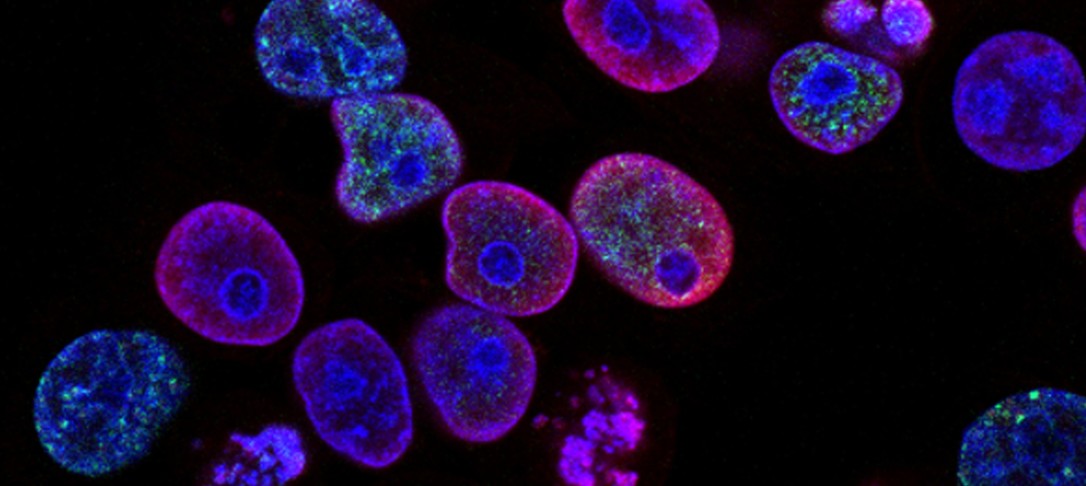
In this series of webinars brought to you by the Cancer Research UK Convergence Science Centre at Imperial College London and The Institute of Cancer Research, London, researchers across the two organisations will discuss key challenges facing cancer research and opportunities for new convergence science approaches to address these. Join us to consider how novel approaches and technologies could shed light on unresolved problems in cancer biology, to innovate new ways to address challenges in cancer and bring pioneering treatments to cancer patients faster.
Hosted by the Convergence Science Centre’s Scientific Director Professor Axel Behrens, the series aims to support the Centre’s mission to facilitate collaboration between traditionally separate and distinct disciplines.
Please join us on Thursday 30th June, from 15.00-16.00, for a talk from:
Prof Charlotte Bevan – Department of Surgery & Cancer, Imperial College London
“Cell-free nucleic acid biomarkers for prostate cancer: two steps forward, one step back?”
Prostate cancer is most commonly diagnosed male cancer and second leading cause of male cancer death in the UK. Localised disease may remain clinically insignificant, while some tumours progress to lethal, therapy-resistant disease. It is not currently possible to reliably predict which course a tumour will take. We will discuss the potential uses of circulating microRNAs and cell free DNA in diagnosis and/or prognosis and their potential for their use as minimally invasive biomarkers in prostate cancer.
&
Dr Sylvain Ladame – Department of Bioengineering, Imperial College London
“Platform technologies for cancer diagnosis based on detection of cell-free nucleic acids in liquid biopsies”
Circulating cell-free nucleic acids (ccfNAs) in bodily fluids have recently emerged as clinically useful and minimally invasive biomarkers for a broad range of cancers. Their low natural abundance and high sequence homology, however, make such biomarkers particularly challenging to detect, especially when using low-cost, point-of-care devices. We will be reporting on the successful design, engineering and preclinical testing of novel platform technologies (lateral flow test, hydrogel-filled nanopore, microneedle patch) for amplification-free detection of endogenous ccfNAs from blood plasma or skin interstitial fluid.
To join us in-person:
 The Cancer Research UK Convergence Science Centre is located within the Roderic Hill Building (5th Floor – South Kensington Campus, SW7 2AZ). Please use the street entrance on Prince Consort Rd where you will be given more guidance to our seminar room. Everybody is welcome!
The Cancer Research UK Convergence Science Centre is located within the Roderic Hill Building (5th Floor – South Kensington Campus, SW7 2AZ). Please use the street entrance on Prince Consort Rd where you will be given more guidance to our seminar room. Everybody is welcome!
To receive information about how to access this event via Zoom, please email icr-imperial-convergence.centre@imperial.ac.uk
About the speakers:
Professor Charlotte Bevan
Professor Bevanjoined Imperial College as Lecturer in 1999. Prior to this, she gained her degree (Natural Sciences) and PhD at Cambridge University before moving on to postdoctoral work at the London Research Institute (now the Crick). Her research career has always been concerned with mechanisms of androgen signalling and the consequences of its dysregulation; this began during her PhD on androgen insensitivity syndrome, a paediatric condition, and is now firmly centred on steroid signalling in endocrine cancer, especially prostate cancer. This has more recently led to a major research interest in microRNAs (and some other nucleic acids): their impacts upon androgen signalling, their role in prostate cancer, their therapeutic potential and their utility as diagnostic, prognostic and predictive biomarkers.
Dr Sylvain Ladame
Dr Sylvain Ladame joined the department of Bioengineering at Imperial College London in 2010 and is now reader in Biosensor development. Prior to that, he spent five years as a postdoctoral researcher at the University of Cambridge within the group of Sir Prof Shankar Balasubramanian (2001-2006) before starting his independent academic career at the CNRS within the Institute of Science and Supramolecular Engineering in Strasbourg, France (2006-2010). Dr Ladame has been interested in the Chemical Biology of nucleic acids for over 20 years and since joining Imperial College London has focused his research on the development of platform technologies and medical devices based on the detection of circulating cell-free nucleic acids in liquid biopsies. Main applications include the development of predictive tests for preterm birth (prenatal testing) and of novel screening tools of a range of cancer types including prostate, breast, endometrial and skin.
Registration
To receive information about how to access this event please email icr-imperial-convergence.centre@imperial.ac.uk
Please note: This webinar is exclusively available only to colleagues across the Institute of Cancer Research, Imperial College London, the Royal Marsden Hospital and Imperial College Healthcare.